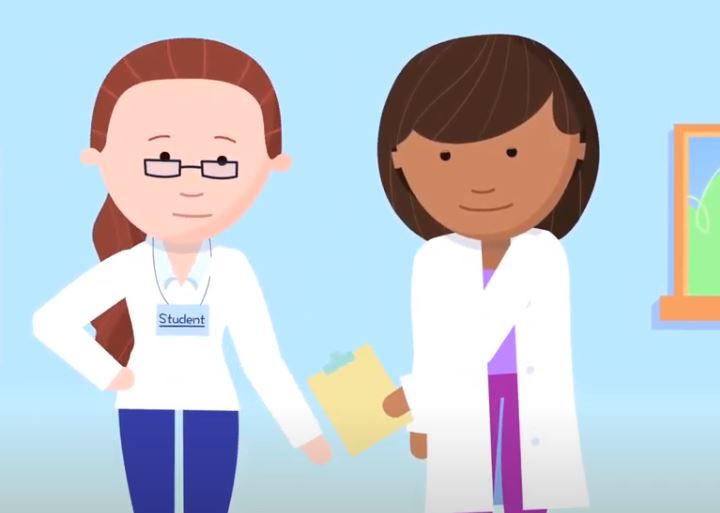As a student you should:
- treat service users and carers as individuals, respecting their privacy and dignity.
- make sure that you have valid consent, which is voluntary and informed, from service users who have the capacity to make the decision or other appropriate authority before you provide any care, treatment or other services.
- follow your education provider’s or practice placement provider’s policy on consent.
- make sure that before you provide any care, treatment or other services, the service user is aware that you are a student.
- respect a person’s right to have their care, treatment or other services carried out by a professional and not a student.
- treat people fairly and be aware of the potential impact that your personal values, biases and beliefs may have on service users and carers and in your interactions with colleagues.
- take action to ensure that your personal values, biases and beliefs do not lead you to discriminate against service users, carers or colleagues. Your personal values, biases and beliefs must not detrimentally impact the care, treatment or other services that you provide.
- keep relationships with service users and carers professional including using the appropriate methods of communication to provide care, treatment or other services.
- not abuse your position as a trainee health and care practitioner to pursue personal, sexual, emotional or financial relationships with service users, carers, other learners or members of staff at your education provider and practice placement provider.
Related content
What the standard says:
-
Treat service users and carers with respect1.1 You must treat service users and carers as individuals, respecting their privacy and dignity.
1.2 You must work in partnership with service users and carers, involving them, where appropriate, in decisions about the care, treatment or other services to be provided.
1.3 You must empower and enable service users, where appropriate, to play a part in maintaining their own health and wellbeing and support them so they can make informed decisions.
Make sure you have consent
1.4 You must make sure that you have valid consent, which is voluntary and informed, from service users who have capacity to make the decision or other appropriate authority before you provide care, treatment or other services.
Challenge discrimination
1.5 You must treat people fairly and be aware of the potential impact that your personal values, biases and beliefs may have on the care, treatment or other services that you provide to service users and carers, and in your interactions with colleagues.
1.6 You must take action to ensure that your personal values, biases and beliefs do not lead you to discriminate against service users, carers or colleagues. Your personal values, biases and beliefs must not detrimentally impact the care, treatment or other services that you provide.
1.7 You must raise concerns about colleagues if you think that they are treating people unfairly, that their personal values, biases and beliefs have led them to discriminate against service users, carers or colleagues, or if they have detrimentally impacted the care, treatment or other services that they provide. This should be done following the relevant procedures within your practice and should maintain the safety of all involved.
Maintain appropriate boundaries
1.8 You must consider the potential impact that the position of power and trust you hold as a health and care professional may have on individuals when in social or personal settings.
1.9 You must take action to set and maintain appropriate professional boundaries with service users, carers and colleagues.
1.10 You must use appropriate methods of communication to provide care and other services related to your practice.
1.11 You must ensure that existing personal relationships do not impact professional decisions.
1.12 You must not abuse your position as a health and care practitioner to pursue personal, sexual, emotional or financial relationships with service users, carers or colleagues.

